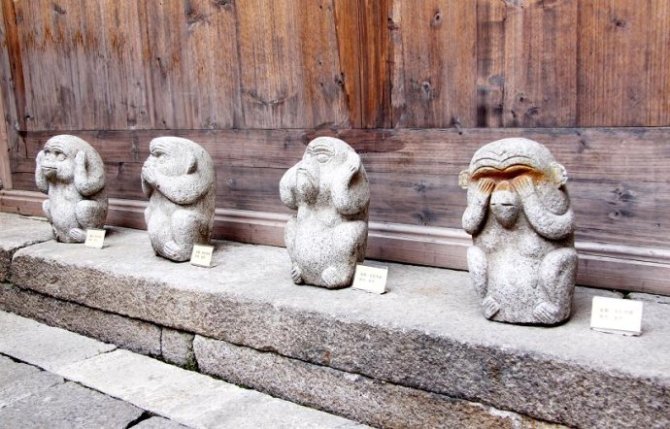12.2 Do not act outside propriety
子曰、非禮 勿視、非禮勿聽、非禮勿言、非禮勿動。
The Master said, ‘Look not at what is contrary to propriety; listen not to what is contrary to propriety; speak not what is contrary to propriety; make no movement which is contrary to propriety.
* * *
Discussion:
Propriety (礼)means the appropriate, according to the prevailing social standards, and according to the standards of the Superior Man. It is close to manner in modern terminology. But embedded in this manner, is wisdom for personal development, morality, and social harmony. Just like the law system setup in the modern era to save guard individual and collective good, this system of Propriety was setup in the ancient past to guide people’s behavior.
This chapter discusses some of the content of this propriety: If it is inappropriate to look, don’t look: Therefore you see the ancient employee don’t look at the eyes of their superiors, it was considered impolite to look at your boss/king directly into his eyes. If it is inappropriate to listen, don’t listen: Respect privacy. If it is inappropriate to speak: keep your mouth shut. If it is inappropriate to move, stay still.
It might seems like a lot of rules, and one may question the validity of the rules, but this is how the rule of propriety was laid out in the past. Are they still applicable in our time? I think so. As a spiritual student, if it is against our devotion or conscience to look/listen/speak/move, we should not do so. If it is something negative to look/listen/speak/move, we should not do so. This is for our own sake, which also affect the society as well as the collective.
You may ask, aren’t we like ostrich hiding our heads under the sand to prevent evil from happening? Yes, if all you do is just shutting down the senses like the monkeys above. Therefore, at a more advanced level, one look/listen/speak/move without the mind being moved. This would be higher level of propriety and stillness.


Leave a Reply